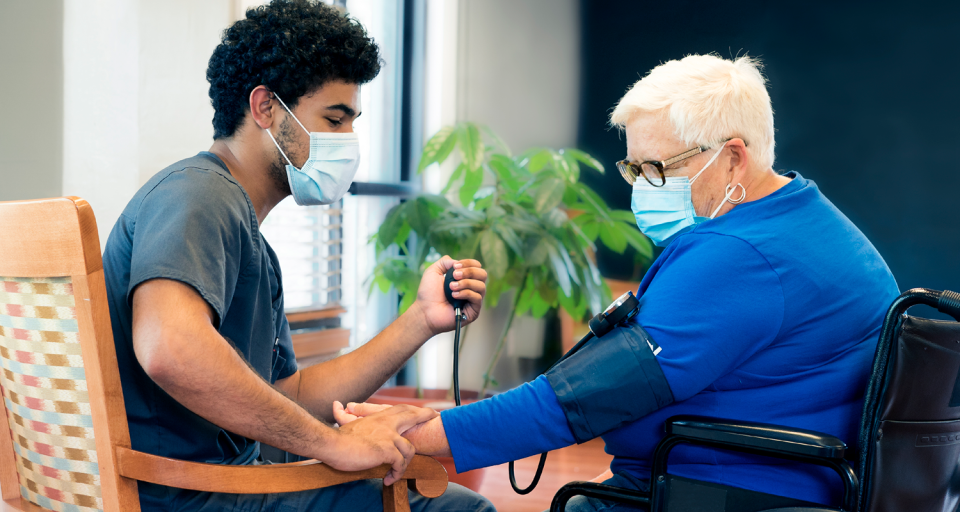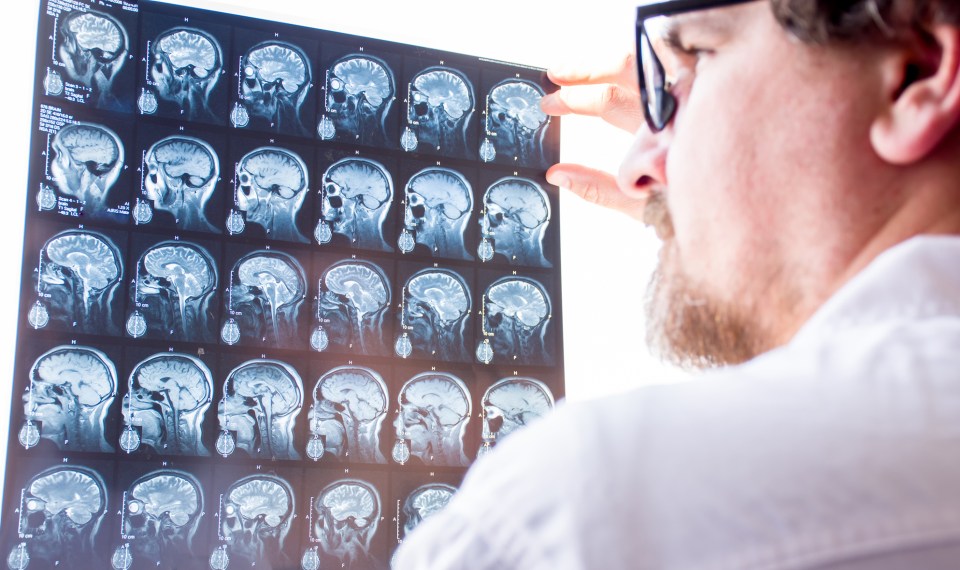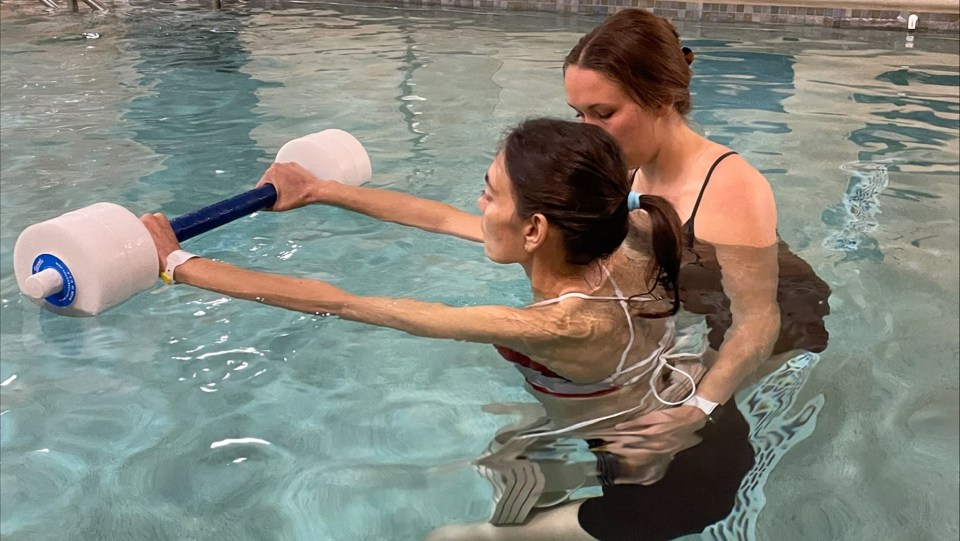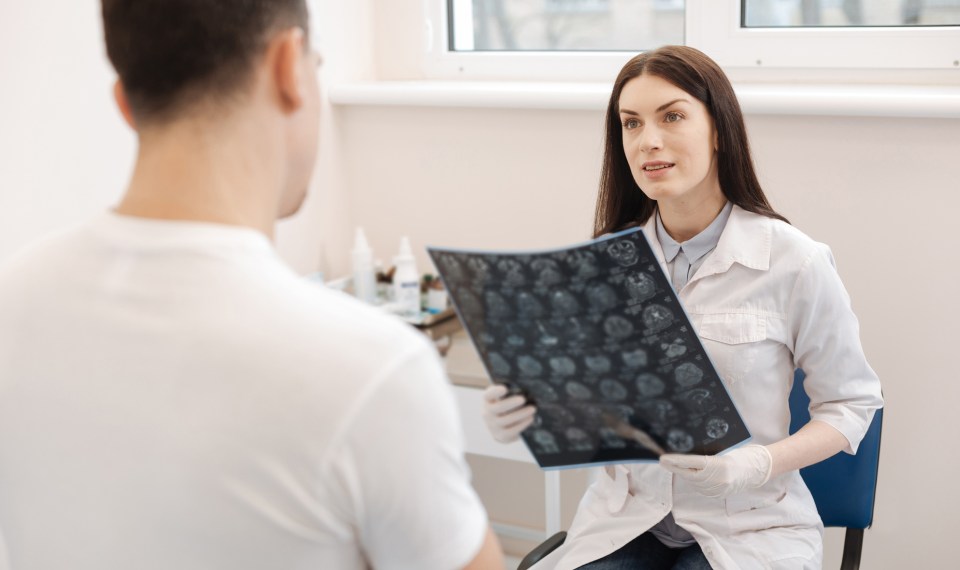Today, more older adults are choosing to age in place and remain in the comfort of home than ever before. But maintaining independence can look different as we age and many people begin to realize that performing everyday tasks is no longer as easy as it once was.
This is where the critical role of home care aides can benefit home health and hospice patients.
Home care aides are a key member of a patient’s home health or hospice team as they keep patients safe and healthy, prevent hospitalizations and help improve quality of life through the essential tasks shown below.
Supporting skilled care
In light of COVID-19 restrictions, Encompass Health continues to provide care to patients in the safety of their home, where they are less susceptible to the spread of the virus. All employees are required to self-monitor daily for symptoms and have also instituted several layers of patient screening prior to every in-home visit, while wearing all necessary personal protective equipment to keep patients safe.
Home care aides are able to assist in patient care under the direction of a registered nurse. This includes taking and recording vital signs.
In between skilled visits, home care aides serve as the protective eyes and ears of the rest of the interdisciplinary team by monitoring and tracking any important changes in their patients. If they notice a change in the patient’s condition, they document it and then consult the nurse or primary care physician to ensure the patient receives the right care, at the right time.
Home care aides also assist in patient education, which is a critical component of helping patients maintain a level of independence. They are able to provide guidance and support on topics such as proper nutrition and medication management, and even help patients with exercises approved by other members of their care team.
Assisting with activities of daily living
One of the main roles of a home care aide is to assist patients with activities of daily living. This can include personal care such as bathing, grooming or dressing.
Home care aides can also help patients and caregivers with light housekeeping duties, such as laundry or food preparation. They can also help patients safely move out of bed or transfer to and from a wheelchair to ensure they can remain safe at home.
Providing companionship
Due the nature of the role, home care aides often become a trusted, reliable and familiar presence to patients and their families. In addition to the care they provide, home care aides often provide much-needed emotional support to patients and caregivers by simply being an ear to listen.
In hospice care especially, aides ensure patients receive personal, hands-on care so they can enjoy dignity and quality of life while facing a terminal illness. Having the companionship of hospice aides can also help alleviate feelings of isolation and depression that can be common at the end of life.
Providing critical care, along with smiles and laughs, is incredibly powerful among patients and caregivers. Not only do home care aides get to know their patients, but they get to know their families as well, often leaving a lasting impact on those they serve.
While the role of a home care aide can be challenging and different every day, home care aides are able to provide compassionate care and support to help patients safely age in place and improve their quality of life.
The content of this site is for informational purposes only and should not be taken as professional medical advice. Always seek the advice of your physician or other qualified healthcare provider with any questions you may have regarding any medical conditions or treatments.



